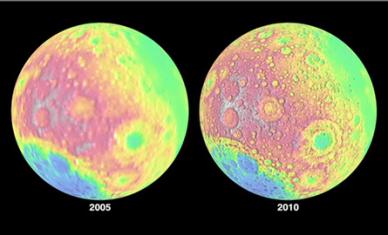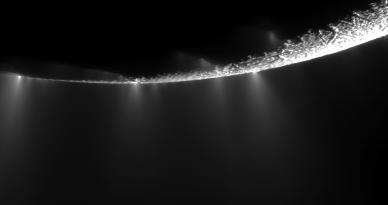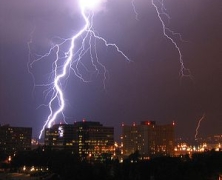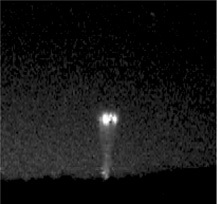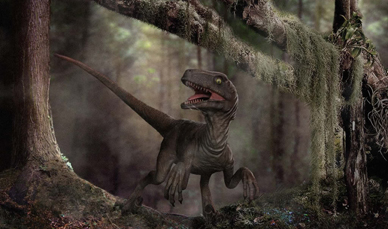NASA's lunar spacecraft has sent back over 192 Terabytes of data -- including some gorgeous new photos of the moon's terrain.
Read More »Earth & Space
Mysterious Ice Plumes on Saturn’s Moon Hint at Hidden Ocean
NASA's Cassini spacecraft has captured exciting new imagery, which shows evidence for the existence of liquid water on one of Saturn's moons.
Read More »June is “Don’t Get Struck by Lightning” Month
To help you avoid becoming a creepy albino lightning freak like that kid from "Powder", NASA is going to have one of their scientists available this Thursday to answer any of your lightning-related questions.
Read More »Only YOU Can Help NASA Find Icy Plutonian Worlds
Millions of NASA photos need to be scanned for icy objects before the New Horizons spacecraft flies by Pluto in 2015. NASA has teamed up with IceHunters to give you the ability to be part of the search.
Read More »Apparently We ‘Just’ Discovered Mercury Has Water
Scientists have spent centuries studying our solar system. However, apparently we don't know everything about one of our closest planetary neighbors.
Read More »Earth Shoots 50-Mile-High Jets of Lightning in Retaliation Against Space
Jets of lighting can shoot upward toward space, and reach distances 50 miles above the Earth's surface. Harness this and we have a pretty sweet anti-everything weapon.
Read More »Dark Energy Exists and Its Tearing the Universe Apart
No one can actually see it. No one knows what it is or how it works. But, after a five-year study of 200,000 galaxies, scientists are as certain as they'll ever be that dark energy exists, and it is tearing our universe apart.
Read More »Shell to Build Largest Object Ever to Float On Water
Shell just one upped Dick Cheney and all his fracking, they're going to build the largest man-made floating object EVER.
Read More »Can Planets Be Orphans Too?
The astronomers, led by Takahiro Sumi if Osaka University in Japan, reported in the journal Nature there are hundreds of billions of planets that have been orphaned by their planetary systems. The planets have either been completely ejected out of orbit, meandering through space, or are distantly bound to their stars at a distance at least 10 times that of the Earth's distance from the Sun.
Read More »Nocturnal Dinosaurs May Have Been a Thing That Existed
Researchers at UC-Davis believe that there are a number of species of ancient dinosaur that were nocturnal, meaning they spent their conscious hours at night.
Read More » Gearfuse Technology, Science, Culture & More
Gearfuse Technology, Science, Culture & More
